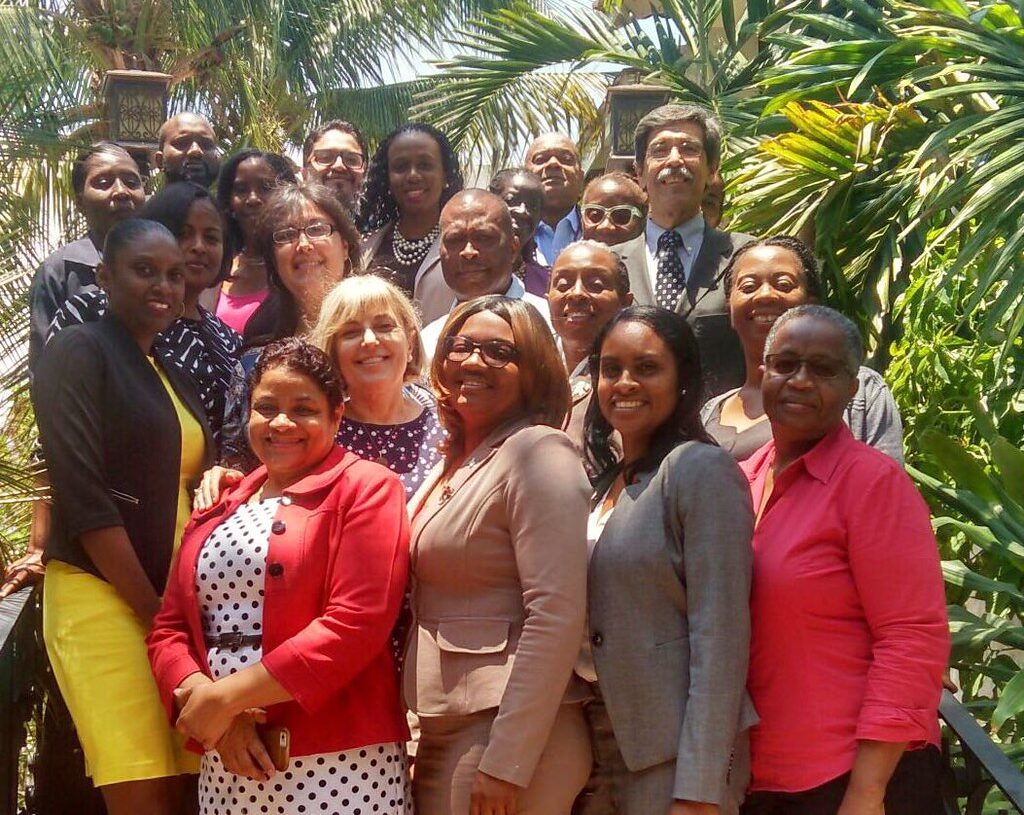Since March, the working groups that will articulate the activities of COPOLAD III are already underway. Due to the pandemic, the groups have been created online, although they will be both virtual and face-to-face with the aim of facilitating the participation of Latin American and Caribbean countries in the program, contributing to the exchange and good practices among the participating countries.
Characteristics
The working groups are open to all interested countries, which may join at any time. Based on the topics of interest of the countries, a work plan will be created to specify the products to be developed. Each working group will have one or more lead countries, both from Latin America and the Caribbean and from the EU, which may be permanent or rotating.
Start of activities
Last april the group “Adaptation/generation of addiction care programs and services to meet the needs of women and vulnerable populations” was launched virtually and led by Uruguay. In April, the group Interventions for Integral Sustainable Alternative Development, promoted by GIZ had a meeting (with the participation of 33 delegates from 14 Latin American and Caribbean countries).
In the coming weeks, work will begin in the following groups:
Control of chemical precursors for the illicit manufacture of drugs; Improving results for sustainable development;
Human rights and gender in drug policies;
National Drug Observatories
Review of the proportionality of criminal law on drugs and Development of alternatives to arrest or imprisonment for minor drug offenses.
The WGs will also hold a specific working meeting, on a bimonthly basis, to analyze and reflect on the results and progress made.
Virtual tool
All the working groups will have virtual support for the development of their activities (telematic meetings, collaborative work, document repository, etc.). This tool will be hosted in the moodle Connect platform.
WORKING GROUPS
1. National Drug Observatories
25 countries: Antigua and Barbuda, Bahamas, Belize, Brazil, Chile, Colombia, Costa Rica, Cuba, Dominica, Dominican Republic, Ecuador, Guatemala, Honduras, Jamaica, Mexico, Panama, Paraguay, Peru, St. Kitts, St. Lucia, St. Vincent, Suriname, Trinidad and Tobago, Uruguay, Venezuela.
2.Adaptation/generation of addiction care programs and services to address the needs of women and vulnerable populations and measures to facilitate their access and harm reduction.
22 countries: Argentina (SEDRONAR), Antigua, Bahamas, Belize, Chile, Colombia, Costa Rica, Dominica, Dominican Republic, Ecuador (Min. Health/ Min. Government), El Salvador, Guatemala, Honduras, Mexico (CONADIC), Panama, Peru (DEVIDA), St. Kitts, St. Lucia, St. Vincent, Suriname, Trinidad and Tobago, Uruguay.
3. Development of national systems for the socio-labor reintegration of people with drug use problems, with a differential and gender approach. Addressing drug-related vulnerabilities to development in the territory.
4. Control of chemical precursors
5. Review of the proportionality of the criminal law on drugs and development of alternatives to arrest or imprisonment in the case of minor drug offenses.
16 countries: Bahamas, Belize, Colombia, Costa Rica, Dominica, Dominican Republic, Ecuador, El Salvador, Honduras, Paraguay, St. Kitts, St. Lucia, St. Vincent, Suriname, Trinidad and Tobago, Uruguay, Venezuela.
6. Improving the sustainable development, human rights and gender outcomes of drug policies
21 countries: Antigua, Bahamas, Belize, Brazil, Chile, Colombia, Costa Rica, Dominican Republic, Ecuador, El Salvador, Guatemala, Panama, Paraguay, Peru, St. Kitts, St. Lucia, St. Vincent, Suriname, Trinidad and Tobago, Uruguay, Venezuela.
7. Integral Sustainable Alternative Development Interventions
18 countries: Belize, Brazil, Colombia, Costa Rica, Dominican Republic, Ecuador, El Salvador, Guatemala, Honduras, Jamaica, Peru, St. Kitts, St. Lucia, St. Vincent, Suriname, Trinidad and Tobago, Uruguay, Venezuela.
8. International cooperation in intelligence and drug trafficking investigations.
9. Special investigative techniques, new technologies and inter-agency cooperation.
10. Strengthening systems for preventing and combating money laundering and supporting the improvement of international police and judicial cooperation on money laundering.
11. Strengthening of financial and asset intelligence systems.
12. Strengthening of systems for the use of confiscated goods and assets and their use for social purposes.






